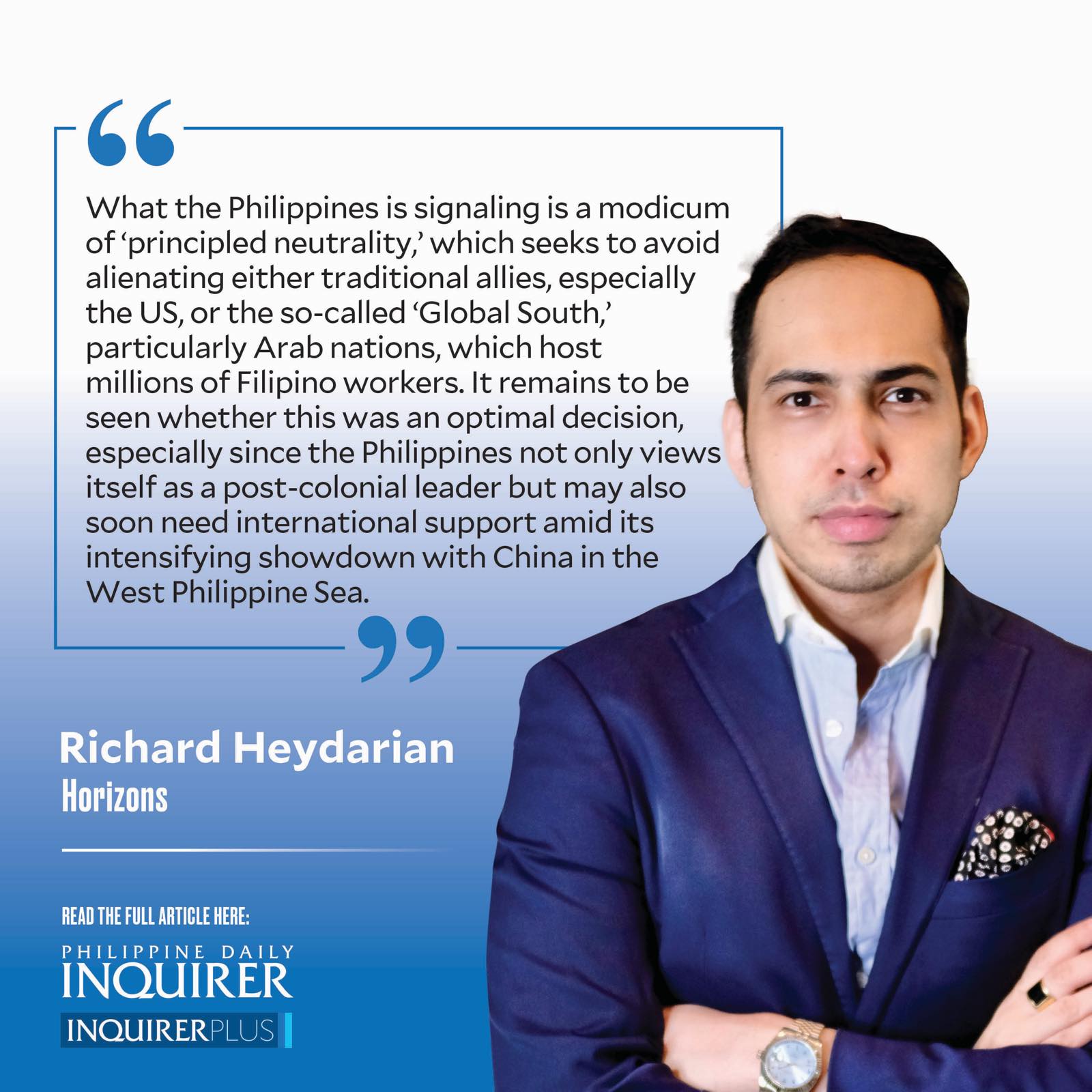On principled neutrality

Kangerlussuaq—It felt like peering into an abyss. Gigantic ice sheets—gorgeous crystalline with a tinge of sky-blue color—dominated the whole horizon. At times, they engulfed whole mountains, resembling lions feasting on bulls in Perso-Mesopotamian art.
The Greenland ice sheet is the largest relic of the Ice Age in the entire Northern Hemisphere. There is quite nothing like it anywhere on earth. It resembles an alien planet. The last time I had a similar sensation was just minutes before landing at Pyongyang Sunan International Airport, where I witnessed spaceship-looking, Soviet-era aircraft surrounded by a Mars-like desert.
As our bus negotiated its way through notoriously rough roads, our gregarious driver/tour guides volunteered a mountain of information about how the area used to serve as America’s base of operations against adversaries throughout the 20th century.
The scale of America’s unparalleled reach, and its decisive role in shaping major conflicts of the past century, is fully on display in the tiny town of Kangerlussuaq, an outgrowth of a former US military base. One wonders what was the state of mind of the countless US soldiers stationed in the wilderness that was Greenland back then. But one can’t doubt America’s strategic audacity and its ability to project power like no other empire in human history.
The barren, snow-packed mountains and frozen deserts in Greenland reminded me of the cradle of civilizations. Throughout my days-long stay in this mini-continent of ice sheets, I couldn’t stop thinking about unfathomably tragic developments in the Middle East. And it’s in this region, long the pivot of history, where the limits of America’s power have increasingly been exposed.
In recent weeks, the world’s superpower found itself deeply isolated in humanity’s premiere public square. First came America’s lonely veto at the United Nations Security Council, then came its minority vote—along with a few Western allies and microstates such as Tonga, Micronesia, and Marshall Islands—against a UN General Assembly resolution calling for a de facto ceasefire in Gaza.
The US has maintained that its principal ally in the Middle East has a right to self-defense in order to protect its citizens against hostile actors. But as many as 120 nations, including leading democracies of France, Brazil, Switzerland, Spain, Portugal, Norway, and New Zealand, voted in favor of the resolution urgently calling for “an immediate, durable and sustained humanitarian truce leading to a cessation of hostilities” amid unfathomable suffering among civilians and children in recent weeks.
According to The Washington Post, “Some parents in the embattled, besieged territory [of Gaza] are scrawling the names of their children on the limbs of the little ones” while others are “tying makeshift identification bracelets or little colorful pieces of string around their wrists” in order to avoid nameless, mass burial of their most cherished loved ones.
The Philippines, however, refused to take sides but instead joined 44 other largely Western nations as well as India, who abstained from the resolution. According to the Philippine envoy to the UN, Antonio Lagdameo, the country’s decision was based on, inter alia, the absence of any direct condemnation of actors behind the Oct. 7 massacres, which tragically also claimed the lives of several Filipinos.
Yet, among countries that voted in favor of the UN resolution are also the likes of Thailand and Nepal, which suffered among the highest foreign national casualties during the shocking violence against civilians in early October.
Nevertheless, the Philippine envoy made it clear that all sides, including Palestinians, “deserve a future where their rights, aspirations, and security are recognized and upheld.” Accordingly, he underscored the importance of a “lasting resolution” of the conflict through “comprehensive dialogues and negotiations, anchored firmly in international law.”
In effect, what the Philippines is signaling is a modicum of “principled neutrality,” which seeks to avoid alienating either traditional allies, especially the US, or the so-called “Global South,” particularly Arab nations, which host millions of Filipino workers.
It remains to be seen whether this was an optimal decision, especially since the Philippines not only views itself as a post-colonial leader but may also soon need international support amid its intensifying showdown with China in the West Philippine Sea. Our next moves amid the escalating conflict will be vital to determining our strategic faith and moral character.
—————-
rheydarian@inquirer.com.ph




















